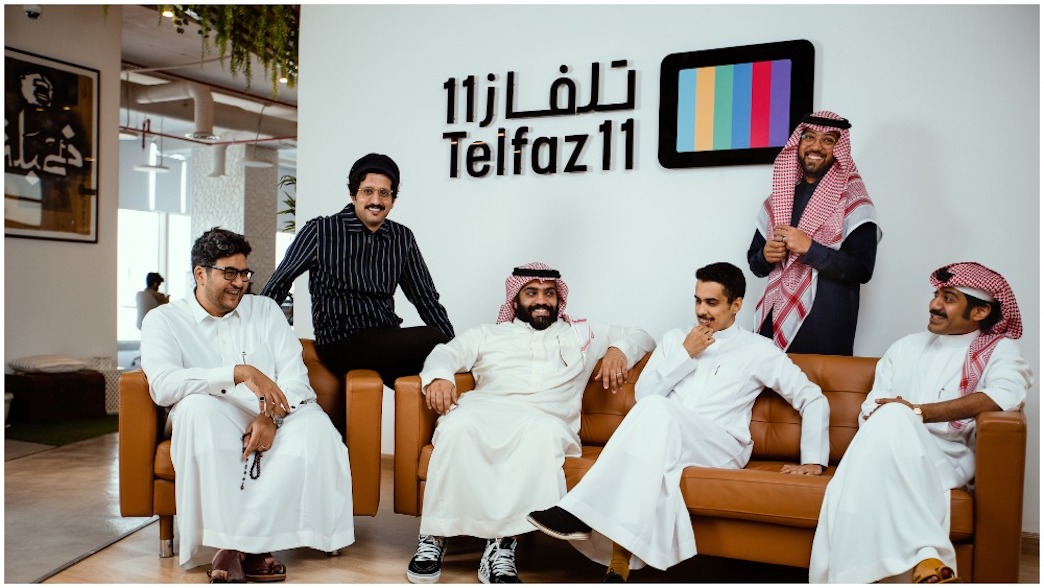ABEER ABUNAYYAN WRITES FROM SAUDI ARABIA – Operating in an increasingly competitive industry, Netflix has been pursuing an aggressive growth strategy intended to increase and diversify its programming whilst gaining access to new, high-potential markets. Having consolidated its position in the United States, the company has spent the past few years forming strategic partnerships with broadcasters, pay-tv operators and production houses from around the world. In 2018, Netflix’s Global Head of Business Development Maria Ferreras noted that strategic partnerships have played a crucial role in enabling the streaming giant to expand its subscriber base whilst maximizing its revenue. As part of its efforts to strengthen its position in EMEA, in November 2020 Netflix signed a deal with Saudi Arabian production group Telfaz11. Having already worked with Telfaz11 in February 2020, it is clear that the streaming giant was pleased with how its first project in the Kingdom of Saudi Arabia turned out. In fact, Teflaz11’s short film collection “Six Windows in the Desert” was so successful that Netflix also entered into an exclusive partnership with Myrkott, a Saudi animation studio.

Netflix’s deal with Telfaz11 will see the production of eight films, the first of which should be released at the end of 2021. While the films will be primarily intended for Saudi viewers, they will also be perfectly suitable for international viewers. As Netflix’s director of content acquisition pointed out, the deal serves three crucial purposes: first, it will expand and diversify the company’s content library; second, it will allow the platform to engage Arab audiences by telling stories that may resonate with them; finally, it will provide international viewers with the chance to experience Saudi culture and humor. Telfaz11’s CEO views the deal as a validation of Saudi Arabia’s burgeoning film industry, as well as an opportunity to showcase the country’s beautiful locations and untapped talent. To fully appreciate the extent of the project, suffice to say that the eight films will be made available to nearly 200 million Netflix subscribers around the world. So what does the deal mean for the Saudi film industry?
First of all, the Saudi film industry may be regarded as a young and small one. In the 1970s, Saudi Arabia witnessed a surge in conservative sentiment which resulted in a series of controversial policies intended to encourage ethical behavior, including a cinema ban that lasted thirty-five years – from 1983 to 2018. When the ban came into force, the local film industry was practically non-existent as the country lacked a lively community of filmmakers, and locals were not exactly passionate about the big screen. However, much has changed during the past three decades. Globalization and technological innovation have exposed young Saudis to different cultures and ideas, stimulating their appetite for both local and foreign content. Having developed a taste for films during the years of the cinema ban, many Saudis started travelling to neighboring countries for the sole purpose of enjoying their cinemas, and universities began offering story-telling and film-making courses. When Prince Mohammed bin Salman lifted the ban in 2018, the Saudi industry was ready to take off.

By the time the ban was lifted, Telfaz11 had already amassed 20 million subscribers on its own network as well as 2 billion views on its YouTube channel. A few months after Prince Mohammed bin Salman’s decision, Telfaz11 raised a whopping US$9 million from multiple local investors, including Saudi Technology Ventures. The group vowed to use the funds to create more monetized content, expand into neighboring markets and gain a better understanding of the Saudi market. With Saudi Arabia’s media and entertainment sector projected to grow exponentially over the next few years, companies like Telfaz11 are ideally positioned to capitalize on local consumers’ growing demand for entertainment, propelling the entire film industry into the future. By partnering with such companies, Netflix is clearly hoping to achieve a sustainable, competitive advantage over other streaming platforms whilst minimizing its reliance on Western markets. At the same time, however, its cooperation with local production houses is also bound to have a tremendously positive impact on the Saudi film industry, thus accelerating its growth. As Telfaz11’s CEO noted, there is a vibrant and dynamic ecosystem of film producers in Saudi Arabia – something which the country lacked back in the 1980s.
With demand for entertainment on the rise, it is now up to Saudi film makers to find ways to give consumers what they want and, in the process, generate considerable revenue. By providing local film makers with the capital they need to execute their projects and access to millions of enthusiastic viewers scattered across the world, Netflix is already playing a crucial role in reawakening the Saudi film industry. Telfaz11 is a production house that aims to showcase both Saudi culture and humor, so it is highly likely that its deal with Netflix will prompt both local and international viewers to demand more locally-produced content, thus encouraging the streaming giant – and perhaps some of its competitors – to further support the Saudi media sector. After all, Telfaz11’s Six Windows in the Desert was very successful not only in the Arab world, but also in other regions, meaning that there is an untapped market out there, waiting to be understood and developed.
ABEER ABUNAYYAN is an LMU senior and an Asia Media staffer.

